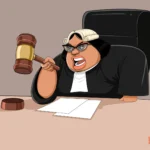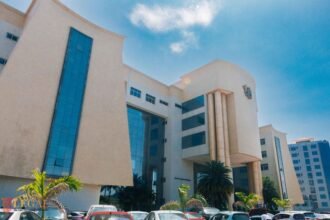
Supreme Court · [2011] GHASC 47 · Ghana
Introduction:
This case clarified the scope of copyright protection under Ghanaian law. The key issue was whether a summary of a novel – without copying its exact language – could constitute an infringement of copyright. The Court had to interpret the interplay between section 2 of the Copyright Act, 2005 (Act 690), and the idea-expression dichotomy.
Facts:
Morgan Adzei authored Woes of the African Mother, a novel selected by WAEC as a BECE examination text from 2004 to 2006. The Ghana Education Service recommended the purchase of 450,000 copies. Adzei sued Pearson Education Ltd for copyright infringement, alleging that its publication Gateway to English for Junior Secondary Schools Pupil’s Book 3 included a detailed summary of Woes without permission. He claimed this deprived him of revenue and constituted an unlawful reproduction. The High Court awarded him $50,000 and ¢650 million in damages, which was upheld by the Court of Appeal. Pearson appealed to the Supreme Court.
Holding:
The Supreme Court allowed the appeal and overturned the decisions of the lower courts. It held that:
- Under section 2 of Act 690, copyright does not extend to ideas, plots, or general summaries.
- The summary in Gateway only captured the general idea or plot of the novel and did not reproduce its expressive form or language.
- Therefore, no copyright infringement had occurred.
The Court reasoned that permitting claims over plot summaries would inhibit literary criticism and educational commentary. It emphasized the policy rationale behind limiting copyright to expressions rather than ideas.
Significant Quote:
“In my considered view, the brief summary of the novel… represents only the essence or the general idea underlying the novel. It does not constitute such a detailed pattern of its ideas that that pattern is in itself an expression… Therefore, the reproduction… in Gateway cannot constitute an infringement of copyright.” – Date-Bah JSC
Commentary/Insight:
This landmark decision marks a significant judicial interpretation of section 2 of Ghana’s Copyright Act, 2005(Act 690) affirming that copyright protects expression, not ideas. While earlier courts were swayed by the moral pull of compensating the author, the Supreme Court correctly insulated copyright law from overreach. The judgment underscores a crucial balance between protecting authors and enabling academic freedom. It provides a cautionary tale for rights holders: not every form of reproduction amounts to infringement.
Comparative Jurisprudence
This interpretation aligns with established principles in jurisdictions such as the UK and the US, where courts have long upheld the idea-expression dichotomy. For instance, in Nichols v. Universal Pictures (1930), Judge Learned Hand warned against granting copyright over “the skeleton of the story” rather than its fleshed-out expression.
Impact on Stakeholders
For stakeholders like the Ghana Education Service and textbook publishers, this Judgment provides much-needed legal guidance. It affirms that educational content creators can engage with and refer to literary works provided they steer clear of copying the author’s actual expressions. For authors, it reinforces the need to understand the precise contours of their rights in a growing educational publishing market.











